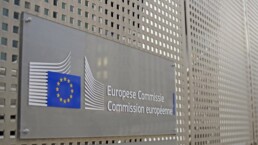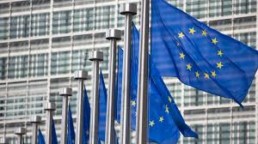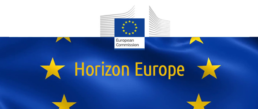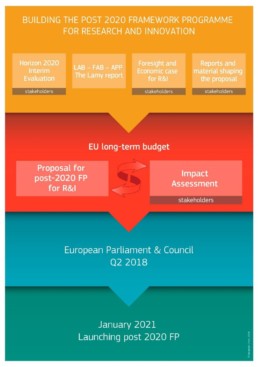GENDER EQUALITY IN RESEARCH AND INNOVATION

Achieving gender equality in research, how it relates to the European Research Area, networks and news.
THE COMMISSION’S GENDER EQUALITY STRATEGY
The European Commission is committed to promoting gender equality in research and innovation.
It is part of the European Commission Gender Equality Strategy for 2020-2025, which sets out the Commission’s broader commitment to equality across all EU policies.
In addition, the EU has a well-established regulatory framework on gender equality, including binding directives, which apply widely across the labor market including the research sector.
Because of the peculiarities of the research sector, specific action is needed to overcome persisting gender gaps. Many structural barriers to gender equality in research and innovation persist.
The European Commission addresses these barriers through
- the main funding instrument Horizon Europe, the previous Framework Programme for Research and Innovation (2014-2020)
- within the European Research Area in collaboration with member countries and research organizations.
Gender equality in Horizon Europe
With Horizon Europe the Commission reaffirms its commitment to gender equality in research and innovation.
The legal base sets gender equality as a crosscutting priority and introduces strengthened provisions.
There are 3 main levels at which gender equality is considered in Horizon Europe
- having a Gender Equality Plan (GEP) in place becomes an eligibility criterion for certain categories of legal entities from EU countries and associated countries
- the integration of the gender dimension into research and innovation content is a requirement by default, an award criterion evaluated under the excellence criterion, unless the topic description explicitly specifies otherwise
- increasing gender balance throughout the programme is another objective, with a target of 50% women in Horizon Europe related boards, expert groups and evaluation committees, and gender balance among research teams set as a ranking criterion for proposals with the same score
Furthermore, specific funding will be dedicated to
- gender and intersectional research, in particular under Cluster 2 of the programme Culture, Creativity and Inclusive Society
- developing inclusive gender equality policies in support of the new European Research Area, through the Widening Participation and Strengthening the European Research Area programme part, Reforming and enhancing the European Research and Innovation System
- empowering women innovators, in particular through Pillar III of the programme, Innovative Europe, and the European Innovation Council (EIC)
The goal is to improve the European research and innovation system, create gender-equal working environments where all talents can thrive and better integrate the gender dimension in projects to improve research quality as well as the relevance to society of the knowledge, technologies and innovations produced.
The Factsheet on Gender Equality: a strengthened commhttps://research-and-innovation.ec.europa.eu/strategy/strategy-2020-2024/democracy-and-rights/gender-equality-research-and-innovation_enitment in Horizon summarizes the key new provisions and requirements, with a particular focus on the new Gender Equality Plan (GEP) eligibility criterion.
For more information please check the link: https://research-and-innovation.ec.europa.eu/strategy/strategy-2020-2024/democracy-and-rights/gender-equality-research-and-innovation_en
GENDER EQUALITY PLANS AS AN ELIGIBILITY CRITERION IN HORIZON EUROPE

As detailed in the last part of the factsheet Gender Equality: a strengthened commitment in Horizon Europe, for calls with deadlines in 2022 and onwards, having a Gender Equality Plan (GEP) will be an eligibility criterion for all public bodies, higher education institutions and research organizations from EU Member States and associated countries wishing to participate in Horizon Europe.
As also recalled in the General Annexes to Horizon Europe 2021-2022 work programme, to comply with the eligibility criterion, a GEP must meet 4 mandatory process-related requirements or ‘building blocks’.
MANDATORY REQUIREMENTS FOR A GEP
- Be a public document: The GEP should be a formal document signed by the top management, and disseminated within the institution. It should demonstrate a commitment to gender equality, set clear goals and detailed actions and measures to achieve them
- Have dedicated resources: Resources for the design, implementation, and monitoring of GEPs may include funding for specific positions such as Equality Officers or Gender Equality Teams as well as earmarked working time for academic, management and administrative staff
- Include arrangements for data collection and monitoring: GEPs must be evidence-based and founded on sex or gender-disaggregated baseline data collected across all staff categories. This data should inform the GEP’s objectives and targets, indicators, and ongoing evaluation of progress
- Be supported by training and capacity-building: Actions may include developing gender competence and tackling unconscious gender bias among staff, leaders and decision-makers, establishing working groups dedicated to specific topics, and raising awareness through workshops and communication activities
In addition to these mandatory process-related requirements, the following 5 thematic areas are recommended for content.
- work-life balance and organizational culture
- gender balance in leadership and decision-making
- gender equality in recruitment and career progression
- integration of the gender dimension into research and teaching content
- measures against gender-based violence including sexual harassment
For more information please use the link: https://research-and-innovation.ec.europa.eu/strategy/strategy-2020-2024/democracy-and-rights/gender-equality-research-and-innovation_en
Commission presents gender equality strategy

On 5 March 2020, the European Commission presented its strategy for equality between women and men in Europe. The strategy aims at addressing fields where inequality still persists, like gender-based violence or gender stereotypes.
The Gender Equality Strategy 2020-2025 sets out key actions for the next 5 years and commits to ensure that the Commission will include an equality perspective in all EU policy areas. To support this, a new Task-Force on Equality has been created. The Task Force will be led by Commissioner for Equality, Helena Dalli.
In the field of research and innovation, the Commission will introduce new measures to strengthen gender equality
in Horizon Europe, such as the possibility to require a gender equality plan from applicants and an initiative to increase the number of women-led technology start-ups. Funding for gender and intersectional research will also be made available. Targeted measures promoting the participation of women in innovation will be developed under the Horizon Europe European Innovation Council, including a pilot to promote women-led start-ups and innovative small and medium-sized enterprises in 2020.
GENDER-EQUALITY-STRATEGY-2020-2025
President of the European Commission, Ursula von der Leyen, said: “Gender equality is a core principle of the European Union, but it is not yet a reality. In business, politics and society as a whole, we can only reach our full potential if we use all of our talent and diversity. Using only half of the population, half of the ideas or half of the energy is not good enough. With the Gender Equality Strategy, we are pushing for more and faster progress to promote equality between men and women.”
The Gender Equality Strategy 2020-2025 sets out key actions for the next 5 years and commits to ensure that the Commission will include an equality perspective in all EU policy areas. The Strategy outlines how the Commission will deliver on the promise made by President von der Leyen that Europe provides the same opportunities for all that share the same aspirations.
The full text of Strategy you can find using the link (5 of March 2020): https://ec.europa.eu/info/sites/info/files/aid_development_cooperation_fundamental_rights/gender-equality-strategy-2020-2025_en.pdf
European Commission Started Public Consultationon Horizon Europe Programme

The Commission invites anyone with an interest in future EU research and innovation priorities, anywhere in the world, to participate in the consultation, which will close on 8 September 2019.
More about the Commission’s proposal for Horizon Europe:
https://ec.europa.eu/info/designing-next-research-and-innovation-framework-programme/what-shapes-next-framework-programme_en
More information about sharing views:
https://ec.europa.eu/eusurvey/runner/HorizonEurope_Codesign_2021-2024

The European Platform of Women Scientists EPWS announced the publication of the EPWS Memorandum on the European Commission’s Proposal for the next EU Research & Innovation Programme (2021-2027) Horizon Europe. It will be is distributed among EU and Member States science policy makers.
The Memorandum “Courageous Revolution speeds up Evolution – First EPWS Memorandum on the European Commission’s Proposal for the next EU Research & Innovation Programme (2021-2027) Horizon Europe”, is an initial reaction from EPWS to the proposal as well as a call for action for an even more consequent integration of gender equality and the gender dimension in Horizon Europe.
EPWS is inviting to call on support in entering the Platform’s recommendations into the research policy process.
The Council Of Europe Adopted Gender Equality Strategy 2018-2023

25 May the Council of Europe adopted its Gender Equality Strategy 2018-2023.
The Strategy renews the Organization’s commitment to address current and emerging challenges and remove barriers towards achieving substantive and full gender equality both in the Member States and within the organisation. The focus will be on six strategic areas: Prevent and combat gender stereotypes and sexism; Prevent and combat violence against women and domestic violence; Ensure the equal access of women to justice; Achieve a balanced participation of women and men in political and public decision-making; Protect the rights of migrant, refugee and asylum-seeking women and girls and Achieve gender mainstreaming in all policies and measures.
The full report is available here
Horizon Europe - The Next Research And Innovation Framework Programme

The Commission is working on its proposal for Horizon Europe, the framework programme that will succeed Horizon 2020. The proposal Horizon Europe is based on various building blocks including the interim evaluation of Horizon 2020, the Lab-Fab-App report (informally the Lamy report), foresight studies and various other reports.
The proposal was made as part of the EU’s proposal for the next EU long-term budget, the multiannual financial framework (MFF). Horizon Europe, with a budget of €100 billion, is the biggest ever research and innovation funding programme.
Horizon Europe is based on a mission-oriented policy approach. Horizon Europe will incorporate research and innovation missions to ensure the effectiveness of research and innovation funding by pursuing clearly defined targets. The Commission has engaged policy experts to develop studies, case studies and reports on how a mission-oriented policy approach would work for Horizon Europe.
More about the proposal: https://ec.europa.eu/info/designing-next-research-and-innovation-framework-programme/what-shapes-next-framework-programme_en
